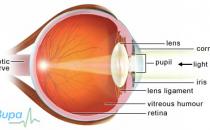HRT to prevent chronic conditions

Postmenopausal women who take Hormone Replacement Therapy (HRT) to prevent chronic conditions may be putting their health at risk, according to a review of the research on HRT published in the journal Annals of Internal Medicine.
Dr Prerna Sharma, Clinical Lead for Bupa Health and Wellbeing, commented: “Over the last decade, there has been a great deal of controversy surrounding the use of HRT. It’s used mainly to help ease symptoms of the menopause, but has also been used to help prevent long-term health conditions such as cardiovascular diseases, osteoporosis and dementia from developing in postmenopausal women. However, the findings from this latest review of the research suggests that taking HRT purely to prevent long-term health conditions may actually cause more harm than good.
The researchers reviewed the effects of two types of HRT – oestrogen-only and oestrogen plus progesterone. They found that both reduced the risk of fractures and diabetes, but increased the risk of conditions such as stroke, some cancers, deep vein thrombosis (DVT), gallbladder disease and urinary incontinence.
What is important to understand here is that whenever you decide to take any medicine or have any form of medical intervention, there are always risks as well as benefits. For some women, the symptoms of the menopause can greatly affect their quality of life causing unpleasant hot flushes, night sweats and headaches. In these situations, taking HRT to help ease these symptoms may be appropriate. However, according to this study, taking HRT to prevent health conditions that a post-menopausal woman may develop in the future, may pose health risks and should be discussed with your doctor.
If you have been prescribed HRT by your doctor, continue to take it as advised. But if you’re worried, speak to your doctor. It’s important that you fully understand the risks and benefits of your treatment so that you can make an informed decision about what is right for you.”
The research review included nine trials carried out in the USA, with most of the results coming from the Women’s Health Initiative (WHI). The women included in the studies were postmenopausal and generally aged between 60 and 69. The researchers also looked at HRT use by subgroup, such as age and if the women had premature or surgical menopause, to see if there were any differences, but the results were inconclusive.
Key facts
According to the study, the following is a list of benefits and harms associated with taking oestrogen-only and oestrogen plus progesterone HRT.
- Oestrogen-only HRT
- Benefits: reduces the risk of fractures and invasive breast cancer.
- Harms: increases the risk of stroke, deep vein thrombosis (DVT), gallbladder disease and urinary incontinence.
- Oestrogen plus progestin HRT
- Benefits: reduces the risk of fractures and diabetes.
- Harms: increases the risk of invasive breast cancer, coronary heart disease (CHD), stroke, deep vein thrombosis (DVT), pulmonary embolism, dementia, gallbladder disease, urinary incontinence and death from lung cancer.
















